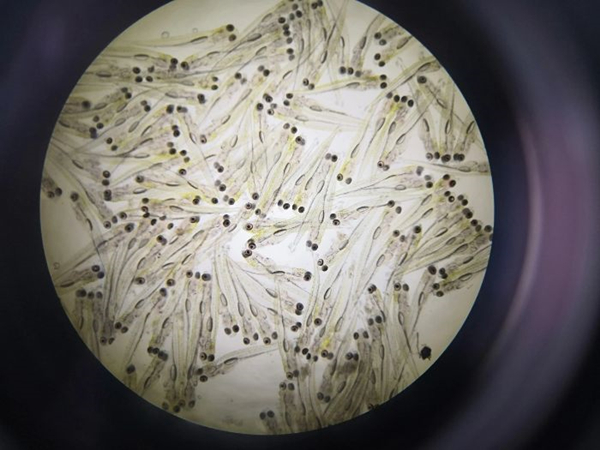CTG facilitates fish reproduction for 11 consecutive years

China Three Gorges Corporation (CTG) kicked off a six-day eco-scheduling experiment to facilitate the reproduction of the four major breeds of Chinese Carps at the Three Gorges Reservoir on May 29, which is being held for the 15th time by the company.
The experiments, designed to promote the reproduction of fish with pelagic eggs like the four major breeds of Chinese Carps in the lower reaches of Gezhouba Dam, has produced remarkable results, evidenced by over 6 billion eggs spawned by the four major breeds of Chinese Carps in Yidu section of the Yangtze River.
The eco-scheduling is the operation of ramping up the water discharge to elevate the water level during the spawning period of the four major breeds of Chinese Carps. It intends to create fitting hydrological and hydraulic conditions to facilitate the reproduction of the fish with pelagic eggs, maximizing the ecological function of the reservoirs along the Yangtze River.
The reason for targeting the four major breeds of Chinese Carps is that they are typical species inhabiting the complex river-lake ecosystem in the middle and lower reaches of the Yangtze River.
Their dynamics serve as an important indicator of the health of the water ecosystem. The spawning period of the four major breeds of Chinese Carps is from the end of April to July every year. Their natural reproduction depends upon specific hydrological conditions, such as continuous elevation of the water level, appropriate flow rate, and water temperature above 20 degrees Celsius.
In the eco-scheduling experiment this time, the Three Gorges dam maintained the average daily discharge at 10,000 cubic meters per second on May 29, and ramped up day by day from May 30 to June 3, each day up about 1,200 cubic meters per second, to create ideal conditions for fish breeding downstream.

 Login
Login Login
Login CCCEU and Gunnercooke Successfully Host Webinar on CSDDD and FLR Compliance to Guide Chinese Businesses
CCCEU and Gunnercooke Successfully Host Webinar on CSDDD and FLR Compliance to Guide Chinese Businesses Cultivating responsible China-EU business leaders essential to tackling global challenges
Cultivating responsible China-EU business leaders essential to tackling global challenges



